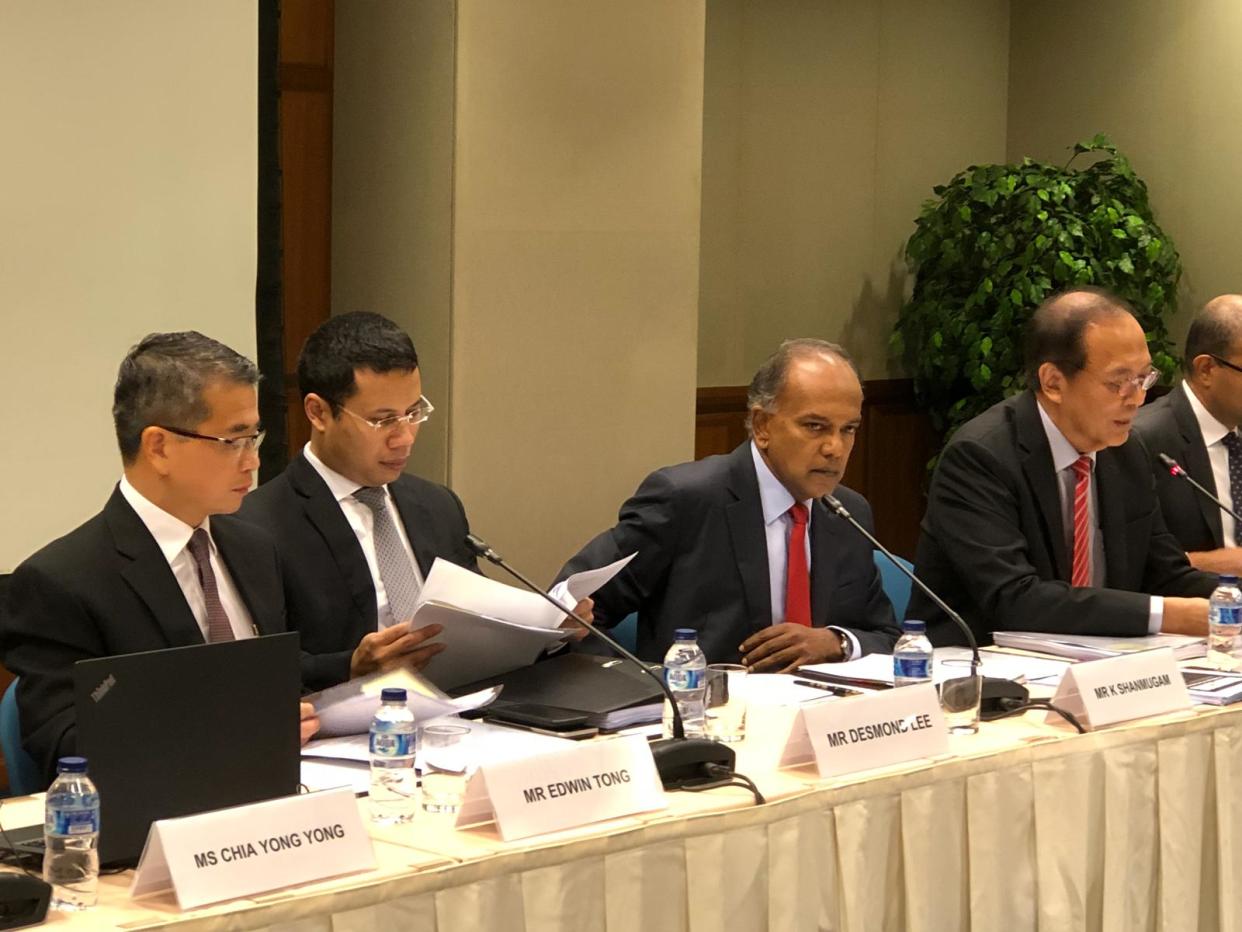Thum Ping Tjin lied to Select Committee, concludes fake news panel

Historian Thum Ping Tjin lied about his academic credentials and gave “misleading evidence”, said the Select Committee tasked with looking into the issue of deliberate online falsehoods on Thursday (20 September).
Thum had sought to paint a picture of holding “an academic position of some seniority with Oxford University”, when this was not the case, said the committee.
“He was given certain privileges in return for him paying a fee to the university,” said the 10-member panel in a 13-page addendum to its report that was dedicated to the committee’s exchanges with three parties critical of its work: Human Rights Watch, Reporters Without Borders (also known as Reporters Sans Frontieres or RSF) and Thum.
In its addendum, the panel also questioned the 38-year-old’s representations. Among other things, the historian gave a misleading description of a 1962 telegram by Lord Selkirk, then British Commissioner of Singapore. “He (Thum) agreed (under questioning by the committee), contrary to what he had initially suggested, that the British held an honest assessment of the security situation in Singapore on which detentions (under Operation Coldstore) could be carried out.”
The historian was subsequently grilled by Home Affairs and Law Minister K Shanmugam on his assertions for six hours during a Select Committee hearing on 29 March.
Asked at a press conference on Thursday why the committee included the 13-page addenda to its report, Shanmugam said the panel wanted to “set out the facts”.
“We had exchanges with Human Rights Watch and RSF. They didn’t turn up and we thought we should set out in the report what happened, and that the committee thought that their excuses for not turning up were contrived. It’s important for the public to know that that’s what happened… particularly given that they were given a very substantial window and offered teleconference,” said Shanmugam.
“As for Dr Thum, again, he was a representor, he was invited, he gave evidence. And since his perspective was unique, we thought that we will set out what we thought of his representation because the committee concluded that he lied about his academic credentials (or) academic positions, and that on the representations, he was not credible.”
Asked if any action would be taken against Thum for lying under oath to the Select Committee, Mr Shanmugam would only say that it would be “inappropriate for us to comment at this stage on that”.
Under the Parliament (Privileges, Immunities and Powers) Act, it is an offence to wilfully make a false answer to any question material to the subject of inquiry put during examination before Parliament or a committee. The penalty for the offence is a fine of up to $7,000 and/or up to 3 years’ jail.
Yahoo News Singapore has reached out to Dr Thum for his response to the Committee’s assertions that he had lied about his academic background.
Meanwhile, the government has accepted in-principle the committee’s recommendation for a multi-pronged approach to combat DOFs.
In a joint statement issued by the Ministry of Communications and Information and the Ministry of Law, the government said it “will study the Committee’s report closely and work with stakeholders to roll out the non-legislative and legislative measures recommended by the Committee over the next few months.”
What Thum Ping Tjin testified
The government has consistently maintained over the decades that Operation Coldstore, which saw the arrests of more than 100 people including senior leaders of opposition party Barisan Sosialis, was a critical security operation that was needed to save Singapore from the threat of communism.
But a number of researchers, including Thum, have argued that the 1963 operation was politically motivated to stop Barisan Sosialis from taking power in the general election scheduled later that year. The potential threat posed by Barisan Sosialis – formed by a breakaway faction of the ruling People’s Action Party (PAP) – and others to overthrow the PAP government through an armed struggle was fabricated by Lee Kuan Yew and his fellow ministers, they contend.
In his submission to the committee, Thum had asserted that fake news has not had much of an impact in Singapore, with one major exception: the “falsehoods” that the People’s Action Party (PAP) used to justify the detentions of thousands under the Internal Security Act from 1963 to 1987.
“Beginning with Operation Coldstore in 1963, politicians have told Singaporeans that people were being detained without trial on national security grounds due to involvement with radical communist conspiracies to subvert the state. Declassified documents have proven this to be a lie.”
Additional reporting by Nicholas Yong
Related stories:
Singapore government should pass laws against fake news: Select Committee
Report of the Select Committee on Deliberate Online Falsehoods Executive Summary
Thum Ping Tjin’s Shanmugam, historian Thum Ping Tjin spar over communist activities in 1950s-1960s



